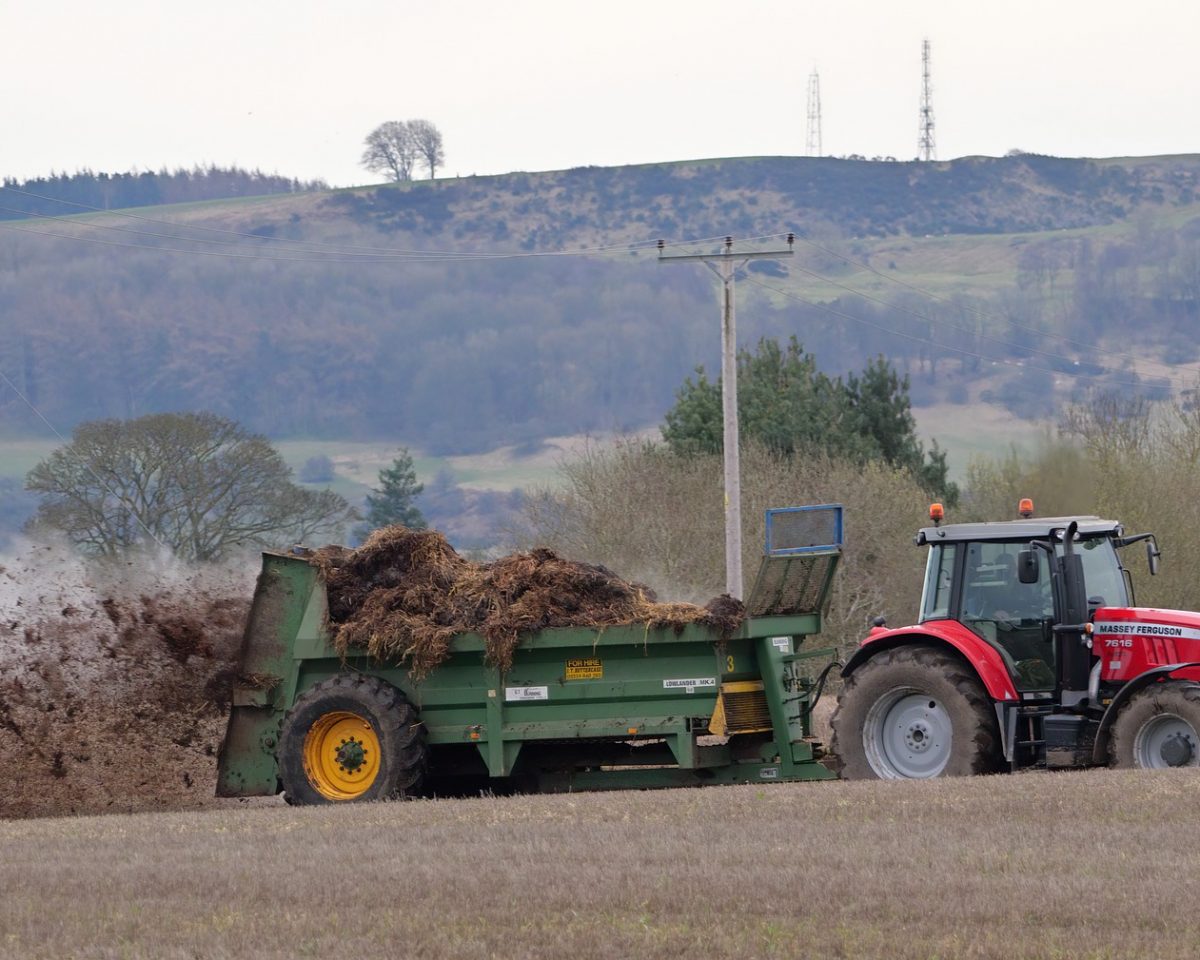Posted on 22nd February 2022

There are less than ten days to go until the current regulations applying to the spreading of organic materials expire, and unsurprisingly, lots of our clients are in the dark as to whether or not they will be extended.
At the time of writing, there has been no official word from the Environment Agency regarding the extension of its regulatory position statement – RPS 252.
RPS 252 says that organic manure should only be spread:
• on land with a low risk of leaching and run-off
• at an application rate that allows no more than 5kg/ha of nitrate-nitrogen to be leached
• when the weather and ground conditions allow, as required by the farming rules for water
Land with a low risk of leaching and run-off:
• is not a sandy soil or a shallow soil, within the meaning of the Nitrate Pollution Prevention Regulations 2015
• is not left bare over winter
• is land with an average slope of less than 8 degrees, and the land’s drainage is not impeded (this means the soil is not compacted nor has a capped soil surface – the soil must be permeable and have a good structure)
• is not a soil at field capacity above a land drainage system (other than sealed impermeable pipe) or shallow groundwater
• has not been pipe-drained, mole-drained or sub-soiled in the last 12 months
• must not be within a designated groundwater source protection zone 1
• must be at least 10 metres from surface water or a conduit leading to surface water
• must be at least 50 metres from springs, wells and boreholes
You must carry out regular checks before, during and after spreading to make sure there is no pollution taking place.
Should the Environment Agency not extend RPS 252, farmers must comply with regulatory requirements for spreading organic manure to land.
The Farming Rules for Water state that all land managers must plan their applications of fertiliser and organic manures and have the following:
• Nutrient Management Plans
• Applications, based on RB209 rules and are made to crop or soil requirement only
• Up to date soil samples, less than 5 years old
• Soil Nitrogen Supply assessments, or Nitrogen soil samples
• Application machines calibrated and records kept
• Pollution risk assessments
• Controls in place to minimise or eliminate pollution
• Work with neighbouring farms to create contingency plans
Storage of Organic Manures must not pose a risk of pollution and stores cannot be:
• Within 10 metres of inland freshwater or coastal water
• Within 50 metres of a spring, well or borehole
These should all be marked on maps as part of your Nutrient Management Plans
Organic manures cannot be applied if the land:
• is to be left bare over winter
• has been drained, pipe or mole, or subsoiled in the last 12 months
• is within a designated ground water source protection zone 1
• is at field capacity above the land drains, i.e. the land drains are running
and there is risk of
• nitrate-nitrogen leaching at above 5kg/ha
• leaching or run-off
and
• surface water is within 10 metres or a conduit leading to surface water
• a spring, well or a borehole is within 50 metres
If you are concerned about the regulations applying to the spreading of organic materials, RPS 252 or
the Farming Rules for Water don’t hesitate to get in touch by emailing ray@walters-rural.com or calling 01522 696 496.
Sign up to receive my our latest news by email